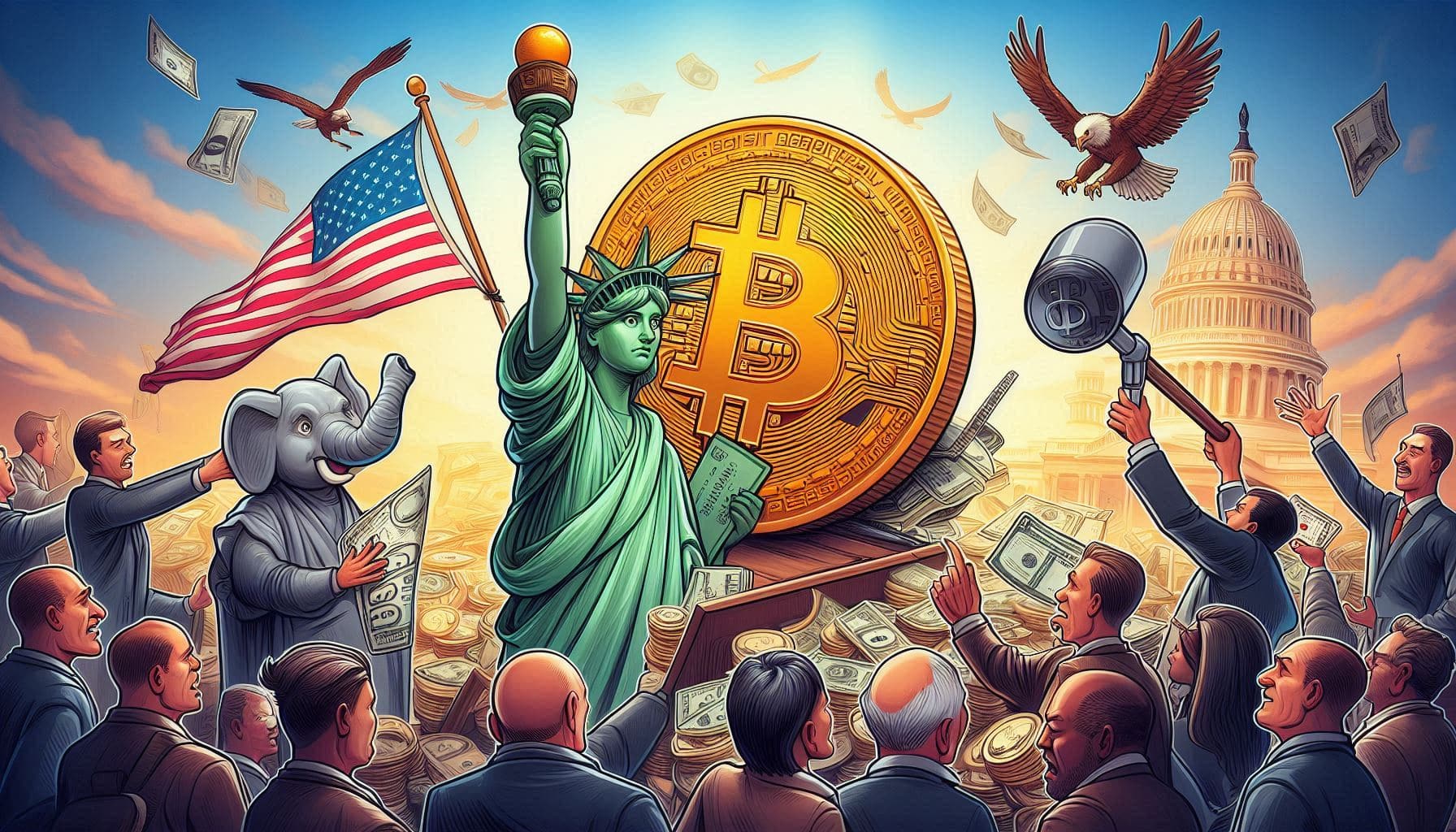In a recent critique, Peter Schiff on Bitcoin took a firm stand against the Bitcoin community, condemning their “illogical arguments” regarding the US national debt. Many Bitcoin advocates believe that the Federal Reserve will soon resort to money printing, causing BTC prices to skyrocket to millions of dollars per coin, which they argue could help address the US national debt. Schiff finds this reasoning fundamentally flawed.

Questioning Bitcoin as a Debt Solution
Peter Schiff on Bitcoin has persistently voiced his opposition to the idea that the US government could resolve its debt crisis by purchasing Bitcoin now and selling it 20 years later. According to Schiff, this notion overlooks the potential inflationary effects of such a strategy. He highlights the paradox of Bitcoin’s price increasing due to inflation while also suggesting the government could use Bitcoin to manage the debt without contributing to inflation.
In a recent tweet, Schiff challenged the “never sell your Bitcoin” mantra popular among Bitcoin enthusiasts like Michael Saylor and former President Trump. “If that’s true and no one who buys Bitcoin ever sells any, what’s the point of owning it?” Schiff asked. He argued that this approach would result in investors living in poverty while hoarding BTC, defeating the purpose of investment altogether.
Analyzing Contradictory Investment StrategiesAt a Bitcoin conference last weekend, Wyoming Senator Cynthia Lummis proposed using $70 billion from the US reserve to purchase one million Bitcoins, or five percent of the total supply. Peter Schiff on Bitcoin dismissed this idea, stating that borrowing billions to buy Bitcoin would only increase debt and inflation. He emphasized that the US government is already deeply in debt, and any additional spending would necessitate further borrowing.
Bitcoin proponents, sometimes called Bitcoin marxists, strongly believe that if the US government begins to acquire Bitcoin now and holds it for the next 20 years, it could pay off its national debt. However, Schiff contends that history shows increasing national debt typically leads to inflation, which undermines confidence in fiat currencies. The US’s outstanding borrowing has already surged to $35 trillion, a figure that alarms many economists and policymakers.

Bitcoin as a Hedge: A Complex Debate
Rich Rosenblum, co-founder of trading firm GSR, sees a potential benefit with Bitcoin. He noted that historically, sovereign nations and investors had limited options to hedge against inflation. Today, they can turn to alternative assets like Gold and cryptocurrencies, including Bitcoin. Rosenblum remarked, “The fact that much of the world has ballooning debt and is arguably in a ‘debt trap’ is the part that’s really good for Bitcoin.”
As the US national debt continues to climb, the purchasing power of the dollar declines. Many governments, businesses, and individuals view BTC as a hedge against inflation and currency devaluation. They are attracted to Bitcoin’s decentralized nature, limited supply, and its capacity to act as a store of value. Peter Schiff on Bitcoin acknowledges that such characteristics make it an appealing option for those seeking protection from economic instability.
However, Rosenblum warned that the high debt level poses a threat to fiscal policy and economic stability, especially with the upcoming presidential elections. High debt levels can impair the government’s ability to respond to economic downturns or emergencies, limiting fiscal flexibility and potentially increasing borrowing costs. Peter Schiff on Bitcoin underscores that Bitcoin’s role as a reserve asset could help mitigate these risks.

Schiff’s Persistent Critique of Bitcoin for Debt Management
Peter Schiff on Bitcoin has consistently criticized the notion that Bitcoin could solve the US national debt crisis. Bitcoin marxists argue that the US government should start acquiring Bitcoin now, betting that its price will rise to millions of dollars per coin, thereby covering the national debt. Schiff finds this proposal fundamentally flawed and contradictory. He questions how Bitcoin’s price can reach such heights due to inflation while being used to settle debt without inflating the USD.
Schiff has always questioned Bitcoin’s capacity to ‘save the world’. When Bitcoin faced a price decline in April amidst geopolitical tensions in Central Iran and Israel, Schiff seized the opportunity to criticize the coin. He pointed out its vulnerability to geopolitical events and its status as a highly speculative asset rather than a haven.
Peter Schiff on Bitcoin continues to challenge the prevailing narratives within the Bitcoin community, urging a re-evaluation of their strategies and assumptions about using Bitcoin as a solution to the national debt. According to officials, the debate is far from over, as both sides present compelling arguments and await the unfolding of future economic policies. Stay tuned to TurkishNY Radio for the latest updates and expert analysis. For more detailed coverage on cryptocurrency news and expert opinions, visit The BIT Journal.





























